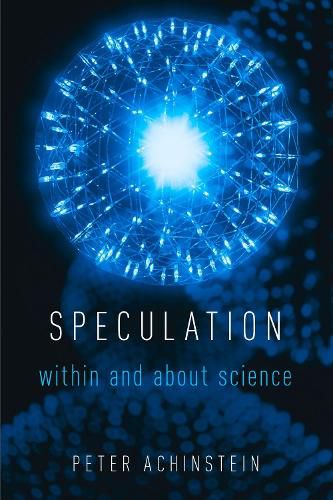Readings Newsletter
Become a Readings Member to make your shopping experience even easier.
Sign in or sign up for free!
You’re not far away from qualifying for FREE standard shipping within Australia
You’ve qualified for FREE standard shipping within Australia
The cart is loading…






Newton urged scientists never to speculate, only to prove by establishing experimental facts. By contrast, Einstein urged scientists to speculate freely, since only daring speculations, not experimental facts, can advance science. Who, if either, is right? Is speculation a legitimate part of science, even in the absence of testing? If so, can speculations be evaluated without testing? How?
To answer these questions it must first be determined what counts as a speculation, a task not usually investigated by those who express strong views about speculation. In Speculation, Peter Achinstein develops the basic idea that speculating involves introducing assumptions, under certain theorizing conditions, without knowing that there is evidence for those assumptions. This idea is made precise by utilizing a concept of evidence Achinstein has introduced in previous writings and also explains here. With this concept, Achinstein defends a view according to which, by contrast with Newton, speculations are crucial in science, and by contrast with Einstein, they are subject to constraints. The latter include pragmatic ones, reflecting the particular aims of the scientist in speculating, and epistemic ones that are subject to a different standard then evidence sufficient for belief. This viewpoint is illustrated and evaluated by critically examining historical and contemporary speculations in fundamental physics as well as more general speculations within or about science, including these: nature is simple, and simplicity is a sign of truth (Newton, Einstein); a theory can only be tested holistically (Duhem and Quine); and there is, and must be, a Theory of Everything (string theorists and reductionists).
$9.00 standard shipping within Australia
FREE standard shipping within Australia for orders over $100.00
Express & International shipping calculated at checkout
Stock availability can be subject to change without notice. We recommend calling the shop or contacting our online team to check availability of low stock items. Please see our Shopping Online page for more details.
Newton urged scientists never to speculate, only to prove by establishing experimental facts. By contrast, Einstein urged scientists to speculate freely, since only daring speculations, not experimental facts, can advance science. Who, if either, is right? Is speculation a legitimate part of science, even in the absence of testing? If so, can speculations be evaluated without testing? How?
To answer these questions it must first be determined what counts as a speculation, a task not usually investigated by those who express strong views about speculation. In Speculation, Peter Achinstein develops the basic idea that speculating involves introducing assumptions, under certain theorizing conditions, without knowing that there is evidence for those assumptions. This idea is made precise by utilizing a concept of evidence Achinstein has introduced in previous writings and also explains here. With this concept, Achinstein defends a view according to which, by contrast with Newton, speculations are crucial in science, and by contrast with Einstein, they are subject to constraints. The latter include pragmatic ones, reflecting the particular aims of the scientist in speculating, and epistemic ones that are subject to a different standard then evidence sufficient for belief. This viewpoint is illustrated and evaluated by critically examining historical and contemporary speculations in fundamental physics as well as more general speculations within or about science, including these: nature is simple, and simplicity is a sign of truth (Newton, Einstein); a theory can only be tested holistically (Duhem and Quine); and there is, and must be, a Theory of Everything (string theorists and reductionists).